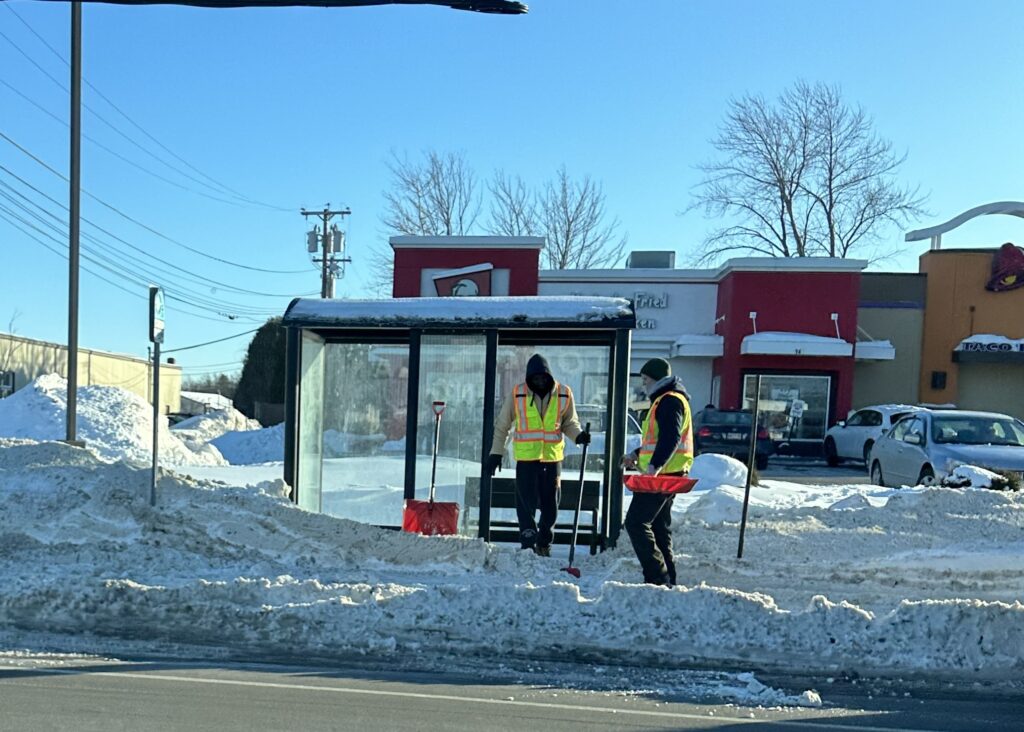Severe Weather Operations
When weather is coming
We know that our passengers rely on Greater Portland Metro to get around no matter the weather. Metro strives to provide safe and reliable transportation during and after storms. However, Metro will adjust service during the worst weather, when operating buses becomes hazardous due to high winds or lack of visibility. During the winter, if there is a blizzard or nor’easter warning, passengers should pay close attention to Metro’s website and social media pages to see if and when service may be affected. Similarly, Metro may consider reducing or closing operations during other severe weather events, such as hurricanes.
Metro strives to alert passengers of reduced or cancelled service the night before service is affected, if not sooner, using the best information available at the time. Officially declared states of emergency, closure of state and municipal offices, and travel bans/advisories are good indicators that Metro service may be suspended. Decisions to suspend service are typically made in coordination with transit partners such as RTP and Biddeford Saco Old Orchard Beach Transit.

After the storm
Metro crews work hard to clean up bus stops after snow storms. Bus stops are often loaded with piles of wet, heavy, icy snow left behind by plows and shovelers. We do our best to clear them as quickly as possible after storms.; however, with over 600 stops in our network, we can’t clear them all as quickly as many would like. Metro prioritize snow clearance at high-ridership stops. Some stops, including those where a sidewalk is not provided and those with a nearby side street or driveway, may not be immediately cleared.
Things you can do to help:
- Keep sidewalks and curb ramps adjacent to bus stops clear after snowstorms. This helps bus passengers reach stops safely. It’s also usually the responsibility of adjacent property owners to clear sidewalks of snow and ice following a storm.
- Adopt a bus stop! If you live nearby a bus stop and wish to help out, you can. Clear out a 4-foot wide path near bus stop signs to allow passengers to wait and board at bus stops, and avoid shoveling or blowing snow from the sidewalk into the bus stop area. This allows people to wait for the bus at designated stops and allows our crews to reach more bus stops more quickly. If the stop has a bench or bus shelter, you can help by clearing out the access points to these amenities as well.
- Passengers may wait at adjacent driveways or street corners if a bus stop isn’t cleared out yet. Drive carefully, watch for pedestrians, and be a kind neighbor.

